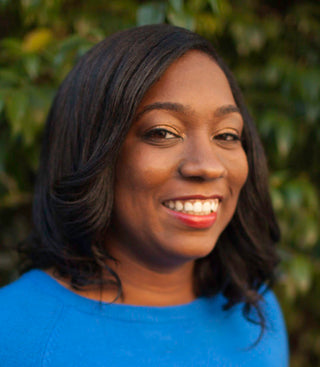This interview was guest authored by Samantha Hahn.
Brit Bennet is an acclaimed new voice in literature. She grew up in Southern California, studied English at Stanford, earned her M.F.A. from the University of Michigan, and then studied abroad at Oxford. Bennet first began work on her debut novel in high school, at the same age as its young protagonist. Riverhead Books (Penguin/Random House) went on to publish The Mothers to excellent reviews. Bennet’s bold, unflinching essays have been published in The New Yorker, The New York Times Magazine, and The Paris Review.
Samantha Hahn: Brit, thank you so much for taking the time to speak with us.
In the New York Times feature about you and your work, you say that “writing about ordinary black people is actually extraordinary… it’s absolutely its own form of advocacy.” You also say that:
“There’s a way in which we have these familiar expectations from black narratives, of where they’re set and what they’ll be about, and it wasn’t something that I felt I had to push back against or whatever, but I wanted to represent the place that I was from and the people I knew.”
Would you elaborate on that? Do you think all writers are expected to be in some way a mouthpiece for their race, culture, or class? Or is this more about your own passion as a writer to convey the experience of the people you deeply understand?
Brit Bennet: Well, I think writers of color are expected to be mouthpieces for their culture. Nobody reads white writers like, ‘what are you going to teach me today about whiteness?’ That being said, I find that a pretty reductive way to think about art. I wrote a book about a very specific black community who live in a very specific place. I’d never write a book that attempts to speak to the “Black experience” because there’s no such thing. People are diverse and complicated and I think the best fiction illuminates specific lives instead of attempting to represent an entire group.

SH: You started writing at a young age in a family of people who worked in more traditional professions. Your dad was a lawyer (the first black attorney in Oceanside, California), and your mom was a fingerprint analyst. What initially sparked your passion for writing? Were there any stories or books you recall reading as a child that fueled your ambitions? Any authors who inspired you to take up the craft?
BB: I just loved reading as a child. I would go to the library and check out all the books I could. When I was about seven or eight, I started writing short stories on the family computer. I had all these ideas for these ambitious historical stories I wanted to write, maybe because I weirdly read a lot of historical fiction. American Girl books, of course, but also the Dear America series. I read Gone with the Wind and Roots in middle school because they were super long books and I felt important finishing them. When I got a little older, I started reading Alice Walker, Toni Morrison, and James Baldwin, who I consider influences now.
SH: At what point do you think you knew that you were not only going to write but that you were going to be a novelist?
BB: I knew I wanted to write a novel someday, and when I read The Outsiders, the teacher who gave it to me told me that SE Hinton wrote the book when she was a teenager. So I wanted to challenge myself to see if I could finish a novel when I was a teenager. I wrote a few extremely bad novel drafts throughout high school, but one of those eventually turned into The Mothers.
SH: While The Mothers addresses race in contemporary black America, it also touches on themes of community, love, friendship, and family. How do you feel these elements have shaped you as a woman and a writer?
BB: As a young woman, I’m always thinking about the questions of family and friendship and faith. I’m wondering how my friendships are changing as we all grow older, as people get married or have children. I’m questioning whether I want to be married or have children someday. So I think a lot of those questions, and anxieties, about growing from a girl into a woman seep into the book.
SH: What are you working on now?
BB: Just started the second draft of the next novel. It’s about estranged sisters.
We are excited to have joined forces with Quarterlane and to bring their wonderful work to the Juniper Journal. This post was created by their team and we hope you enjoy it and their other content!


